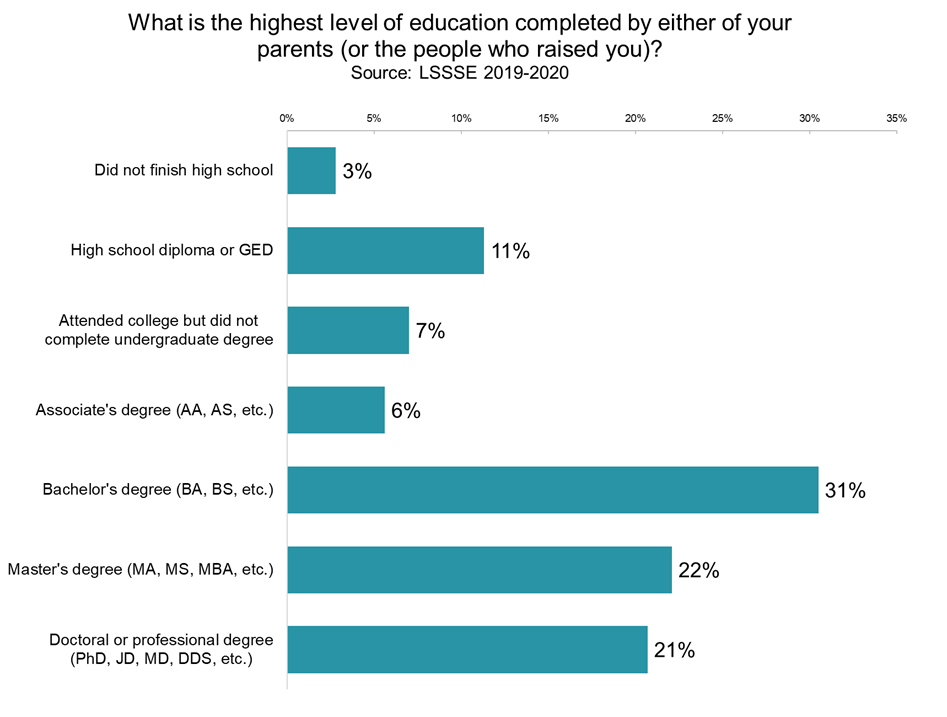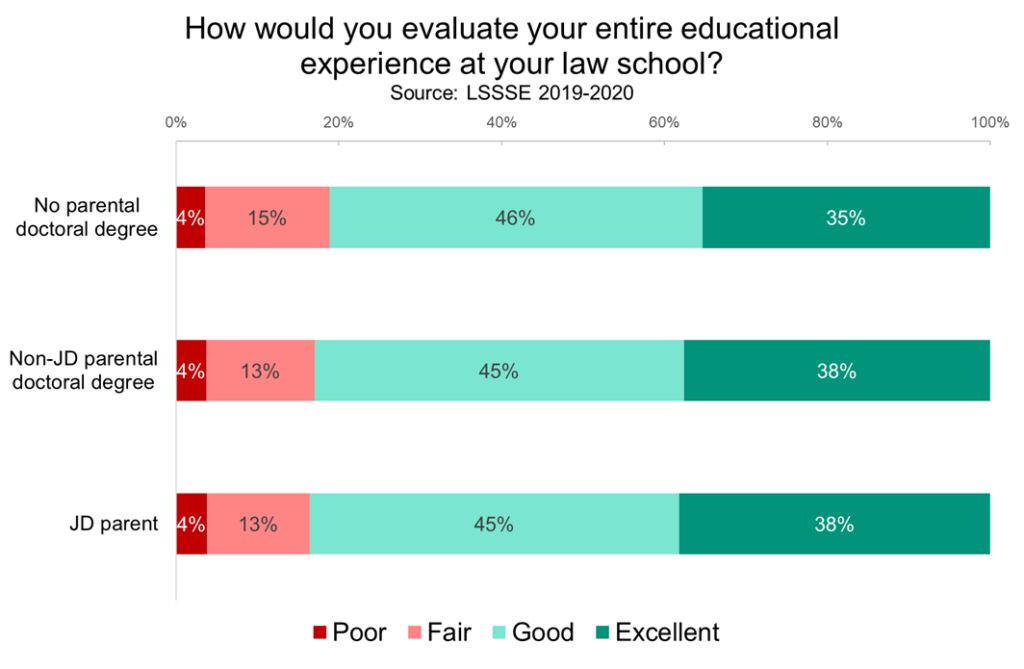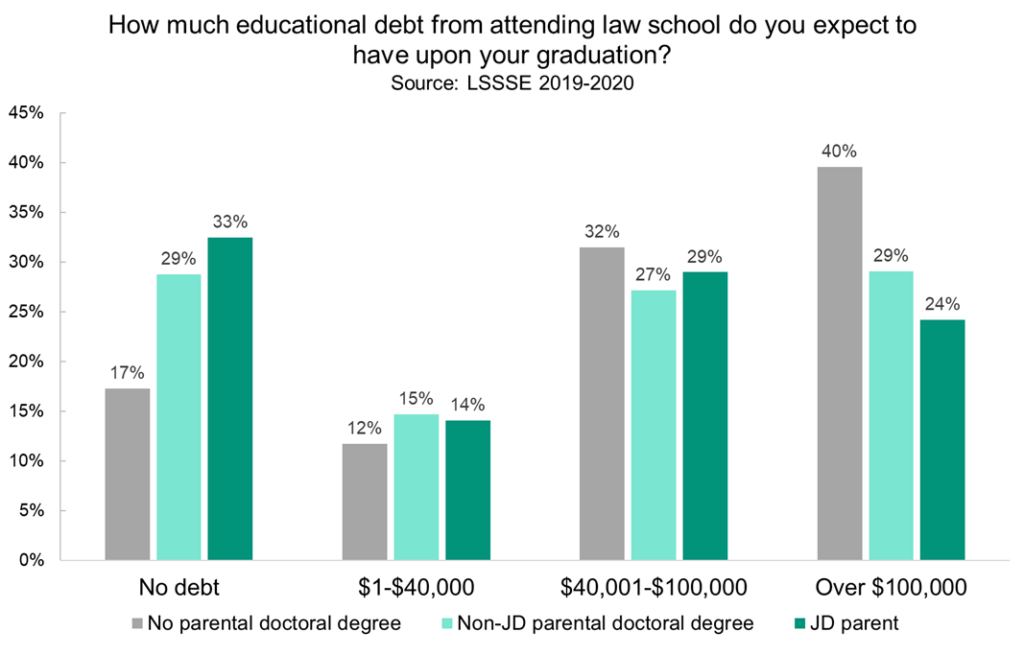How Many Law Students Are Following in Their Lawyer Parent’s Footsteps?
Why and how do people choose their course of study and their future career? While status, compensation, and personal values likely play an important role in choosing a career, there may also be an influence of family tradition. We used LSSSE data from 2019 and 2020 to ask how many law students have at least one lawyer parent and to see whether these students differ in appreciable ways from their classmates who were not raised by a lawyer.
Law students tend to have educated parents. Around 73% of LSSSE respondents have at least one parent with a bachelor’s degree or higher. One in five students (20%) have at least one parent with a doctoral or professional degree (PhD, JD, MD, DDS, etc.), and among those students, just over half (53%) report that the doctoral degree is a JD. Overall, 11% of LSSSE respondents have a parent with a JD.

By and large, law students are satisfied with their experiences at law school, and we see minimal differences in satisfaction by parental education. If we combine “good” and “excellent” ratings, satisfaction is 84% among students who have at least one parent with a JD, 83% among students who have at least one parent with a different doctoral degree, and 81% among students whose parents do not have doctoral degrees. Students who have at least one parent with a doctoral degree may be slightly more likely to choose the highest rating (38% vs. 35% among students with non-doctorate parents).

We do, however, see large differences in expected law school debt based on parental education. Students with less educated parents are much more likely to expect to owe more than $100,000 upon graduation and much less likely to graduate debt-free than their classmates with more educated parents. On some level, this may make sense, given that parental education is a strong predictor of a students’ socioeconomic status. However, it remains deeply problematic given that law school debt disadvantages students from lower income households and minimizes upward economic mobility, particularly among students of color. Interestingly, compared to their counterparts whose parents have non-JD doctoral degrees, students with JD parents are still less likely to owe over $100,000 and are more likely to graduate debt-free. If we assume socioeconomic status is roughly equivalent among parents with doctorates, then there may be some advantage to having a lawyer parent, either by increased parental investment in the students’ education or by a keener insight into navigating the process of financing a legal education.


